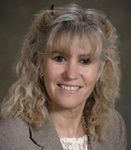- Case-Based Roundtable
- General Dermatology
- Eczema
- Chronic Hand Eczema
- Alopecia
- Aesthetics
- Vitiligo
- COVID-19
- Actinic Keratosis
- Precision Medicine and Biologics
- Rare Disease
- Wound Care
- Rosacea
- Psoriasis
- Psoriatic Arthritis
- Atopic Dermatitis
- Melasma
- NP and PA
- Skin Cancer
- Hidradenitis Suppurativa
- Drug Watch
- Pigmentary Disorders
- Acne
- Pediatric Dermatology
- Practice Management
- Prurigo Nodularis
- Buy-and-Bill
Article
Emergency checklist: A step-by-step guide for physicians to what you'll need to be prepared
Author(s):
Long before disaster strikes, experts say physicians should have an ermergency plan in place
National report - Long before disaster strikes, experts say physicians should have the following items in place:

"Once we have electronic medical records, this will be much easier" to do with patient records, as well, she says. If paper charts must stay behind, she recommends storing them off the floor, in case of water damage.
Peak Performance Physicians encourages most small practices to back up accounts receivable weekly, Mr. McDaniel says. "Large ones usually do it daily." When using outside vendors, he adds, "Ask your billing company, 'What is your disaster plan?'"
Other vital records include tax returns, deeds and profit-and-loss statements.
She and Mr. McDaniel recommend using regional or national banks, accessible through automated teller machines (ATMs). Dr. Boh also suggests setting up an alternate means of paying bills, if one doesn't do this online.
"Our nurses, doctors, residents and academic staff all have everybody's e-mails, cell numbers and alternate contact points," she says.
For natural disasters, adds Owen J. Dahl, a practice management consultant in Houston, "Assume that your phones and cell phones will be down, so how will you deal with that? Old-fashioned phones that don't require electricity will still work."
Other helpful items include garbage bags, grounded extension cords, disposable cameras to record damage, and plastic sheeting and duct tape to seal rooms, if necessary.
When Katrina hit, "Those who had business interruption insurance basically had a year's vacation, because it will pay for your income, and, depending on the type of insurance, perhaps some operational expenses like employee salaries," Mr. McDaniel says.
He also advises making sure the policy covers a pandemic and other threats, and recommends checking to see if it requires a waiting period - for instance, three days - before taking effect.
"If you're only going to be closed for three days, the interruption insurance won't cover anything," he notes.
Disclosures: Drs. Greenway and Boh report no relevant financial interests.
For more information: http://www.cdc.gov/ http://www.aad.org/members/disaster/index.html http://www.who.int/






